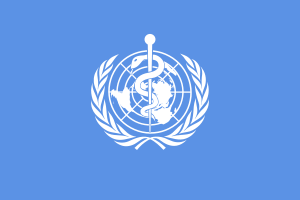 Abortion, family planning, and sexual education will be vigorously debated in the upcoming UN Commission on Population and Development.
Abortion, family planning, and sexual education will be vigorously debated in the upcoming UN Commission on Population and Development.
The theme of this year’s commission is “Fertility, Reproductive Health and Development.” The initial draft of this year’s outcome document was released last week and as expected, the text is rife with references to sexual and reproductive health, family planning and contraceptives. Sadly, despite mounting evidence of the problems of demographic decline, there is only one scant reference to countries experiencing below-replacement fertility.
Many statements by abortion NGOs are included in the official agenda of the commission, including International Planned Parenthood Federation, Family Care International, Ipas and Advocates for Youth. These statements call for increased funding for family planning and contraceptives, decriminalizing abortion, as well as comprehensive sexuality education for young people, including the “removal of legal barriers that restrict young people’s access to essential services, such as parental and spousal consent, age of consent and issues of confidentiality.”
In his pre-meeting report, UN Secretary General Ban Ki-moon touts the financial benefits for individuals and nations of reducing fertility. He asserts, “Improvements in child nutrition, health and education can be achieved more easily when there are fewer children to compete for the resources and services available.” He adds, “Many countries where fertility has declined significantly have benefited because having fewer children has made it possible to invest more in productive activities.”
One of the most important UN Secretary General reports for the commission, regarding financing for international population and development activities, was drafted not by the Secretary General’s office but by the UN Population Fund, which has been under severe criticism for its advocacy of abortion.
Controversy has plagued the last 2 meetings of the CPD. In 2009, after several days of particularly bitter negotiating sessions, countries expressed concern about the working methods of the commission in finalizing the outcome document. One frustrated ambassador stated that his delegation was finding it more difficult in accepting the resolutions of UN bodies like the CPD where there were consistent attempts to expand “reproductive health” to include abortion.
In 2010, delegates were again stymied when controversial language on “sexual and reproductive health” and “comprehensive sexuality education” made it back into the final text despite widespread support for a toned-down draft that reflected delegations’ concerns over the controversial terms.
Apart from written submissions, abortion groups are also actively participating in the meetings and hosting panels. UNFPA is teaming up with IPPF to host an event on adolescent girls and reproductive rights and Dr. Eunice Brookman-Amissah of Ipas — the manufacturer of early abortion devices — will be giving one of the keynote addresses.
Pro-life advocates are preparing for the uphill battle. One long-time UN observer told the Friday Fax that “Rather than talking about development and fertility, the focus of the meeting seems to be on reducing reproduction through widespread access to contraceptives and abortion.”
The Commission on Population and Development will take place in New York from April 11-15.



